Unexpected Discoveries In A Small Garden
Have you ever visited a garden that was not what you expected?
I recently had the opportunity to visit a small 2-acre garden run by master gardeners Mount Vernon, WA in conjunction with Washington State University.

Photo: Pink Dogwood
Now for those of you who kindly read through my myraid of garden travels on my Northwest road trip – this garden was somewhat different and completely unexpected.
I’ve had the opportunity through my travels to visit a number of gardens run by master gardeners and I have found them to be places for learning more about plants and gardening practices.

Discovery Garden
While I expected much of the same with this garden, I found so much more. Within its boundaries, there were so many separate gardens including a 4 seasons, cottage, Japanese, native, shade and sun garden just to name a few. However, in addition to the more traditional gardens, were also an imaginative children’s garden and an enabling garden for those with disabilities.
I’ve been waiting to share the wonders of this garden with you. I hope you enjoy the tour!

Discovery Garden

Discovery Garden
The Discovery Garden is located in the small town of Mount Vernon, otherwise known as the bulb-growing capital of the U.S. It is 60 miles north of Seattle.
Espaliered apple trees grew on the fence along the front entry.

Small apples were ripening, which made me remember that Washington is the state where the most apples are grown.

As we entered the gardens, we noticed helpful signs that described the theme of each sub-garden along with a list of the plants growing in it.
The paths curved, creating islands where each individual garden stood. This photo, above, shows how curving paths create a sense of mystery, leading one on to discover what is around the bend.


The Four Seasons garden showed examples of plants in bloom alongside others that will bloom later in the season.


Of course, anywhere I find peonies growing, I find it hard to tear myself away from this lovely flowering plant that can never grow in my warm desert garden.

Japanese gardens are quite popular in the Northwest and this garden had one of its own.

My mother and I journeyed through the garden on a cloudy Saturday morning. As we walked through the gardens, we met with one of the 27 master gardeners who take care of this garden.
She was nice enough to take us on a tour of the gardens and told us that the entire garden was designed by master gardeners. I must admit that the landscape designer in me was extremely impressed at how well it was designed.
Gardeners know that most landscapes hold secrets that aren’t always evident to the casual observer and this one was no different.

She guided us toward a tree that held a tiny hummingbird’s nest.

They have Anna’s hummingbirds living in the gardens year round.

However, I was very happy to be able to see a Rufous hummingbird for the very first time, drinking nectar from nearby flowers.

Continuing on our adventure through the garden, I spotted swaths of purple in the distance.

Have I ever told you that I like irises almost as much as peonies?

Thankfully, these can be grown in my Arizona garden.

The Herb Garden was next.

The sage was in full bloom and it was hard to imagine that people grow them for their foliage and not their lovely flowers.

There was even a variegated sage.

I really liked these rustic plant signs.


Within the Herb Garden, was a display with a list of herbs and how they are used as dyes.
Who knew that basil is used as a black dye?

Photo: Flowering Garlic Chives
Our time in this garden was limited since we had a plane to catch in Seattle in the early afternoon. To be honest, we hadn’t expected to find so much to explore in this university garden and so we had rush to see as much as we could.


Photo: Columbine

Of course, like most educational gardens, this one had a great compost working display.


Divided bins were filled with ‘greens’, ‘browns’ and ‘twigs’.
However, my favorite part was the ‘Yuck Bin’…


One of the many reasons that I like to visit gardens whenever I travel is that I get to see plants that don’t grow where I live.

This is the Heather Garden, filled with a variety of heathers.
I admit that I haven’t seen much heather growing except for trips to Great Britain.


Some of the heathers were beginning to flower.

While there is much more to see, I want to share with you one last garden area in this post that really caught my eye.

Have you ever heard of ‘naturescaping’? I haven’t, but it immediately sounded like my style of sustainable, low-maintenance garden.

This area of the garden was filled with native plants and associated cultivars that receive minimal maintenance. The plants were chosen with the goal of attracting wildlife with many plants providing shelter and food.

I hope you have enjoyed the first part of the tour of this small garden.
But, I’m not finished yet. I’ve saved the best for last. Come back next time to see the Children’s, Enabling, Native and Vegetable Gardens.
You may even spot the elusive Peter Rabbit in Mr. McGregor’s garden…
A Hidden Garden in the Smallest Place

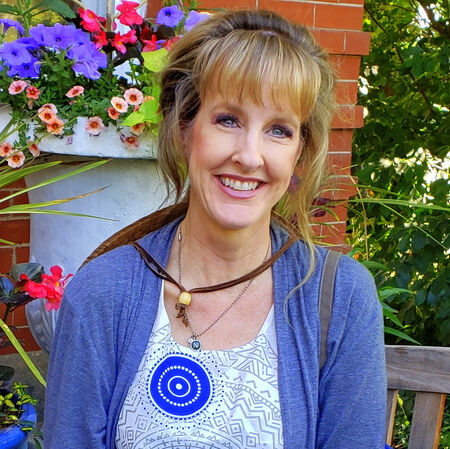 Noelle Johnson, aka, 'AZ Plant Lady' is a author, horticulturist, and landscape consultant who helps people learn how to create, grow, and maintain beautiful desert gardens that thrive in a hot, dry climate. She does this through her consulting services, her online class Desert Gardening 101, and her monthly membership club, Through the Garden Gate. As she likes to tell desert-dwellers, "Gardening in the desert isn't hard, but it is different."
Noelle Johnson, aka, 'AZ Plant Lady' is a author, horticulturist, and landscape consultant who helps people learn how to create, grow, and maintain beautiful desert gardens that thrive in a hot, dry climate. She does this through her consulting services, her online class Desert Gardening 101, and her monthly membership club, Through the Garden Gate. As she likes to tell desert-dwellers, "Gardening in the desert isn't hard, but it is different."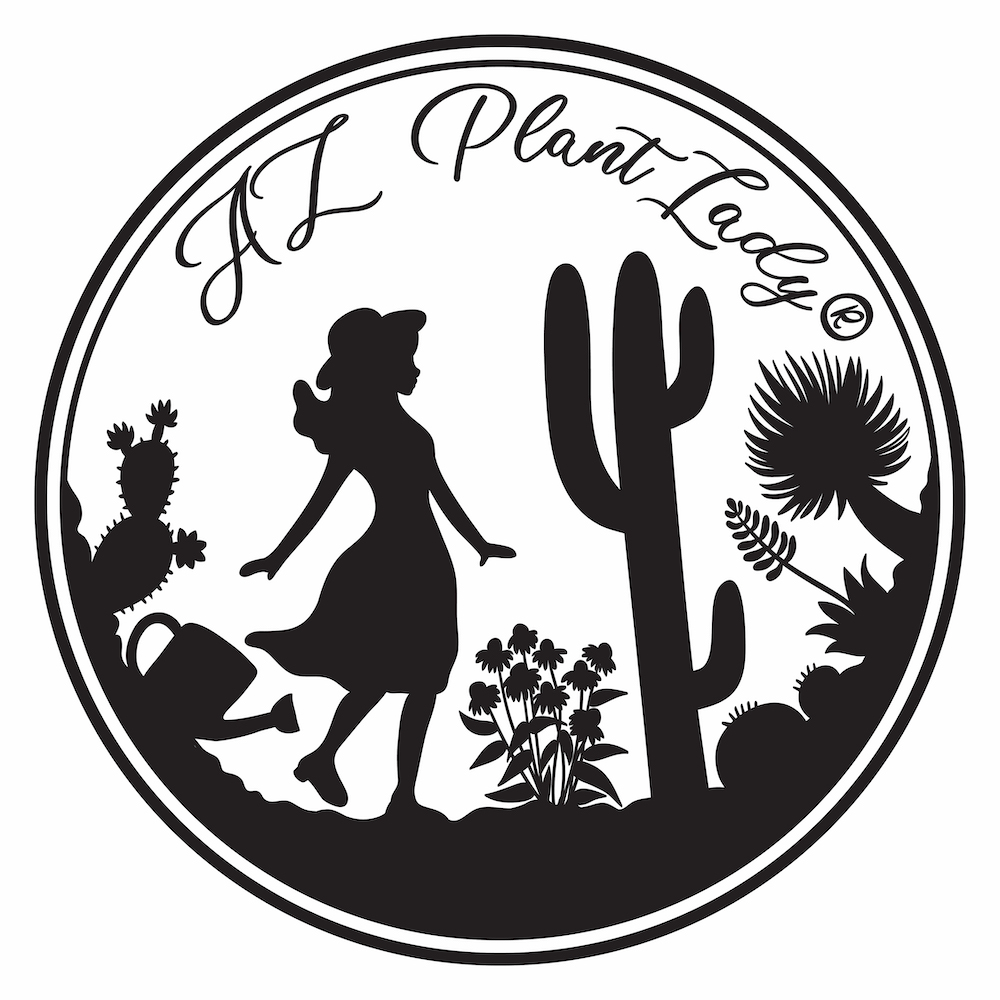






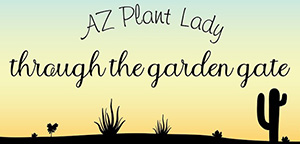

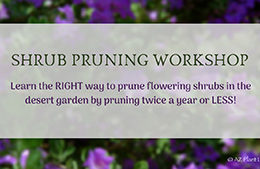

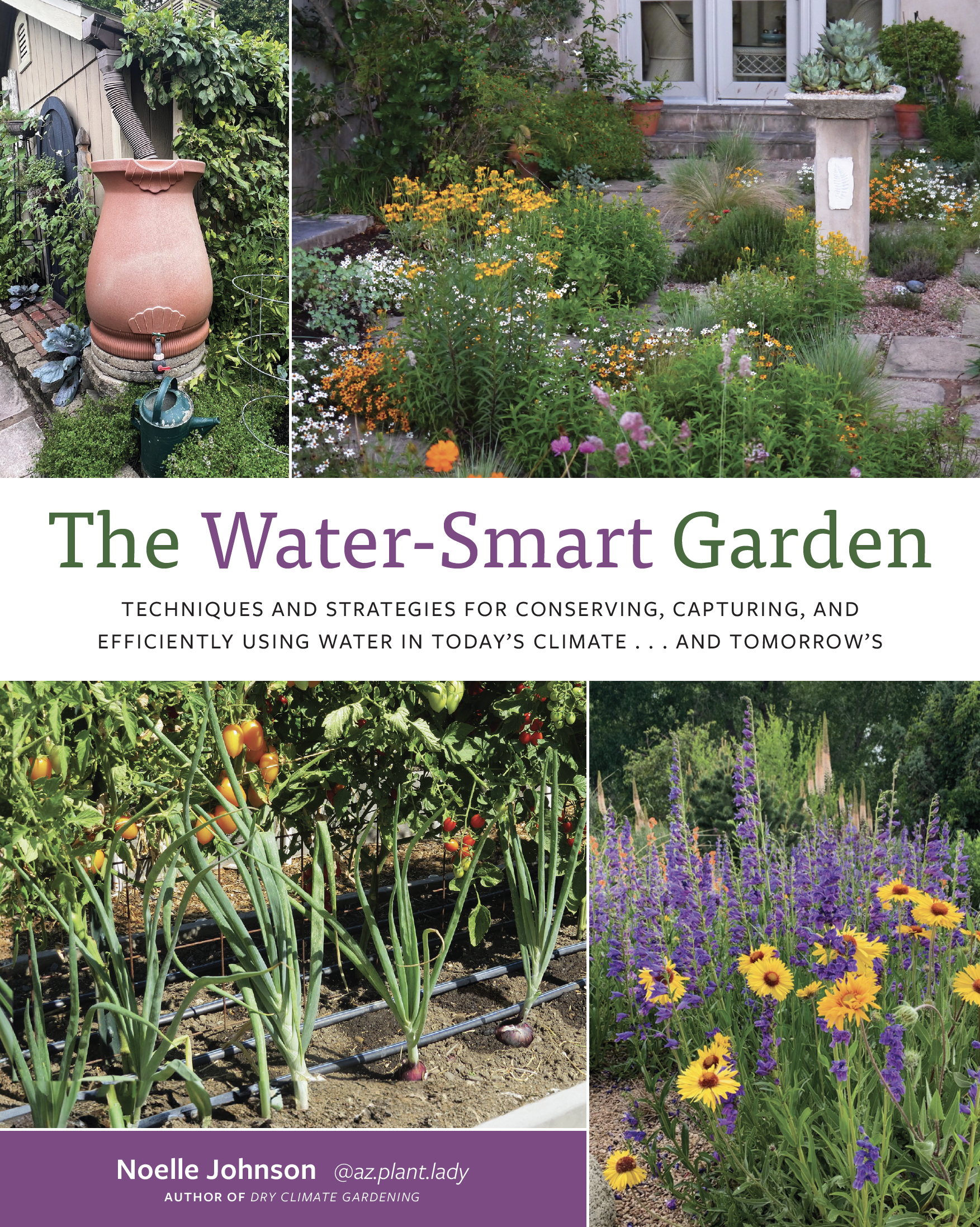
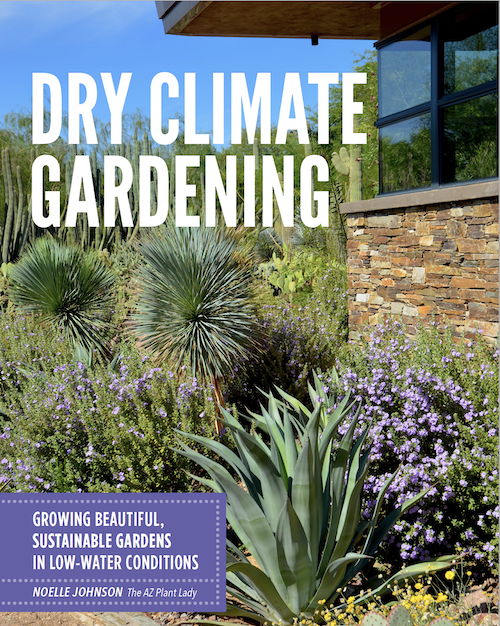


Wow, that does sound like an interesting garden! So many different things happening. Those master gardeners are a brilliant bunch. Did they happen to say when they do with the YUCK bin, or does it just sit there forever? The naturescaping garden is particularly interesting to me. Can't wait to see the rest!